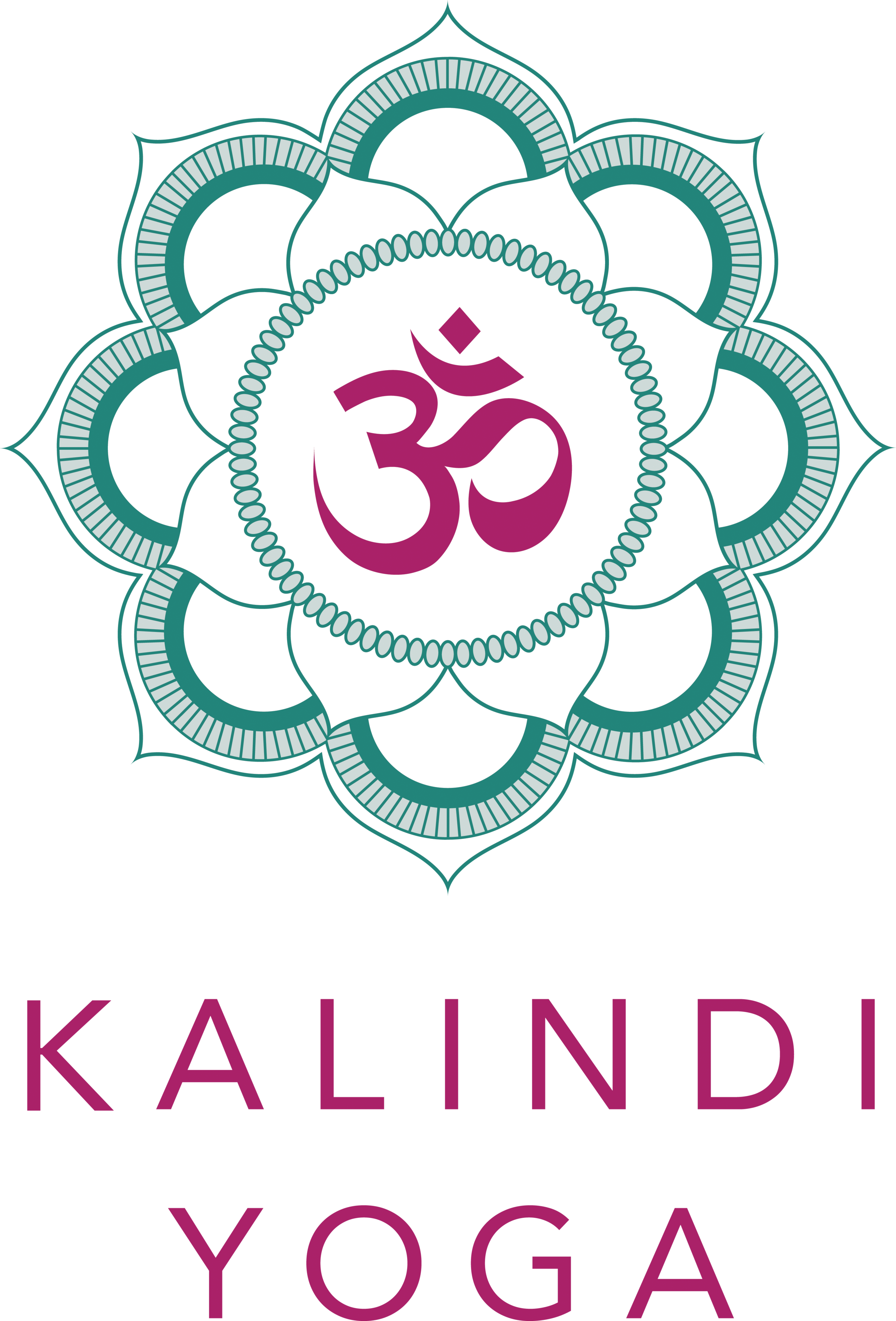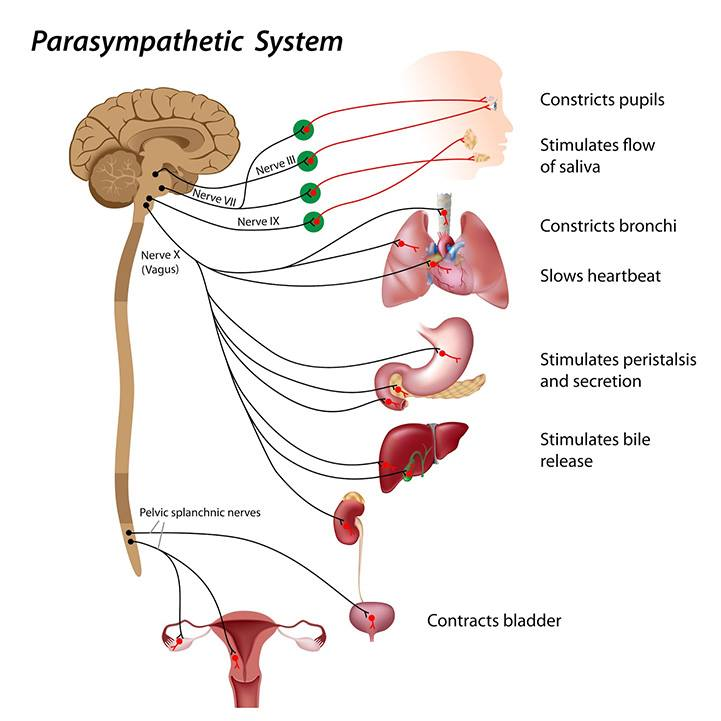Ujjayi breath and the vagus nerve
The Vagus Nerve
The Vagus nerve is a nerve that runs through your throat and vocal cords. It's a part of your parasympathetic nervous system which is your rest and digest function of the body. Therefore, if we can access or stimulate this nerve, we can have an effect on our ability to unwind and relax.
This nerve, while being part of the parasympathetic nervous system, has parasympathetic control of the heart, digestion and lungs. Not only can accessing this nerve help us to relax mentally but it also has the same effect on the physical body in the circulatory, digestive and respiratory systems. Your whole body gets a moment to pause and recalibrate.
The job of the vagus nerve is to carry a variety of signals from the digestive system and organs back to the brain and the other way around. It extends from the brainstem through the throat, thorax and abdomen.
Ujjayi breath
Ujjayi breath can also be called ocean breath or victorious breath. It's a breathing technique where we slightly restrict the back of the throat as we breathe in and out through the nose. This restriction causes a soft ocean sound, like the waves on a beach. It has a very calming effect on the mind but we now also know, it affects the vagus nerve as well.
The connection
When we practice Ujjayi breath, we are stimulating the vagus nerve. This stimulation means that the vagus nerve will pick up on the slow, deep breathing Ujjayi breath creates and tell the brain this message. The message is that the breath is relaxed and there's nothing to worry about in that moment.
As the vagus nerve connects with the diaphragm, diaphragmatic breathing is one of the easiest ways to stimulate this nerve and create a relaxation response in the body.
Other benefits
An image showing the branches of the vagus nerve through the throat
There are other benefits to practising Ujjayi breath. In my speciality of yoga, Hormone Yoga Therapy, we use it during the part of the practice where we are working with the thyroid gland, located in the throat. Ujjayi breath helps to stimulate the vagus nerve and then ultimately the relaxation response in the body, as we've discussed above. And simultaneously, it stimulates the gland that's responsible for our metabolism and energy levels. This creates a really rejuvenating affect on the body and mind and leaves us feeling incredibly calm yet alert. Furthermore, Hormone Yoga Therapy places a huge emphasis on reducing the stress response in the body so working with Ujjayi breath works on two very important levels here - massaging and stimulating the thyroid gland but also working with the parasympathetic nervous system to help us come to a quieter place, both physically and mentally. Stress is the biggest influencer on our hormone system and so it's incredibly important that we take time to deal with stress and have techniques we can use regularly to help our body and mind cope better.


